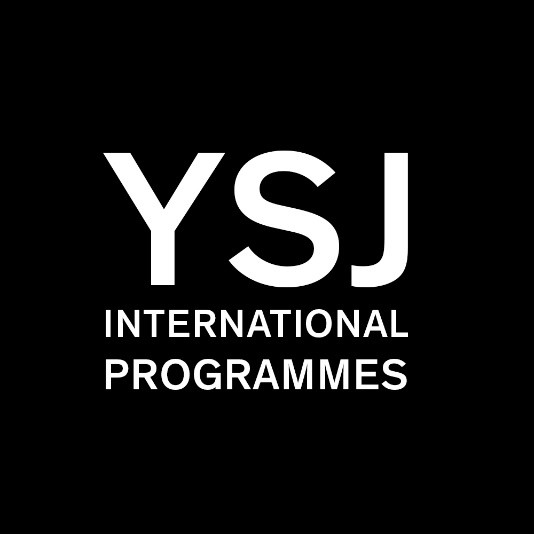By Kate Dexter.
Will our new international students be ready for their tempestuous flight: the challenge of living, studying, and thriving in an unfamiliar land, amongst unfamiliar others… in an unfamiliar location, with a seemingly near-unfathomable set of everyday expectations… within what may be a vastly unfamiliar academic culture?
More importantly, will you be ready for them?
We should be. According to Dr Debbie Weekes-Bernard, Deputy London Mayor for Communities and Social Justice, “York St John University is an institution which prides itself on the work it does to support international students”.
But, coming to a UK university may feel like migrating in a storm…
Ryan and Carroll (2005) remind us that there is far more to succeeding in a UK HE environment than language competency, and how our international learners are also dealing with unfamiliar academic, cultural and linguistic conventions, in addition to being removed from home support, with high stakes (of meeting expectations) to factor in.
There is something else besides. At this point, a “deficit model” (Ryan and Carroll, 2005) may be coming into play: the notion that international learners present an additional burden…
“Often, a deficit view of international students sees them as lacking in independent, critical thinking skills; as plagiarisers or rote learners… and having awkward ways of participating… Yet when examined, the deficit model is hard to sustain” (Ryan and Carroll, 2005, p.6).
… That said, perhaps it won’t be an issue at all. Perhaps these students won’t ask for any support. Quayyum (2018) finds that students are more likely to ask their peers for advice, and, if they feel particularly unequal to the requirements of their course, will be even less likely to ask their tutor for guidance.
So, maybe, there isn’t any need to find better strategies to work with our international course participants.
Why challenge the “deficit model”?
As Carroll and Ryan (2005) point out, language limitations are not indicative of poor thinking skills. For instance, they propose that plagiarism may simply be easier to hide in a first language. International students, according to Davies and Brown (2022), may avoid paraphrasing as they do not know how to. Carroll and Ryan, 2005 (p.9) use the astute analogy of “canaries in the coalmine”: what our international learners make manifest to us, they suggest, is what our home students may well also be struggling with.
And, if all of that isn’t enough for us to seek better ways in which to work with our global learners, try this: it is claimed that international students have an increased rate of mental health issues and are more likely to leave their courses (Ryan, 2005).
What can we do, in practical terms?
Academic life is busy enough, and any solutions or changes need to be realistic and realisable.
Here are a few that the International Programmes Team (part of YSJ Global) suggests:
- Acknowledge that international students have different cultural and educational backgrounds and expectations, as this may explain issues such as seemingly reluctant participation in some activities.
- Students from all countries have the ability (but perhaps have not had the same opportunities) to think critically. Why not? You might just need to teach them how…
- Speaking to the tutor, speaking without being nominated, or disagreeing may be seen as rude in some cultures, so give clear guidance from the outset.
- International learners may not have experience of the same tasks as home students (such as group work). Teach/guide them to avoid issues of dominance or silence.
- International students may feel too daunted to contribute to seminars or discussions, so structure these/create smaller groups, and so on. Make speaking activities “safe” (by giving clear instructions/scope for the activity).
- Give students time to consider, formulate and deliver their answers. Don’t feel daunted by the silence while they are doing so… and don’t snatch the opportunity away from them to fill it.
- It is helpful, supportive and necessary to teach international students referencing skills and lecture and seminar etiquette and expectations. Educate them in what they “don’t know they don’t know.”
Essentially, international students may need additional training and information: we shouldn’t underestimate them, but we should be mindful of different experiences.
Invest time, at the beginning of your module, to understand your (international and home) students’ needs and to educate them in the areas outlined above.
The return on your investment will be well worth it.
There is support available for you, too.
This blog has been adapted from part of my recent conference presentation at Talk about Teaching, June 2023). As a member of the International Programmes team (YSJ Global), I’m delighted to be part of both our ISLD (Insessional Support & Language Development) and RAIS (Raising Awareness of International Students) services. The former will be glad to support your international students with their language and study skills; the latter is here for you, as educators and colleagues, working with our highly valued international learner community.
In my next blog entry, I suggest some practical changes you can make to the language of tasks and sessions that will help you to encourage and support international student participation.
In the meantime, please feel free to make use of our support:
Insessional Support & Language Development (ISLD) webpage
ISLD Moodle site (it is necessary to enrol to view the complete resources and content)
RAIS (Raising Awareness of International Students) Moodle site
For ISLD or RAIS queries, contact: language-support@yorksj.ac.uk
References
Barber, J., Cassamally, M. and Dexter, K. (2023) Teaching international students: a practical awareness session / RAIS (Raising Awareness of International Students). Mentimeter Presentation. Talk about Teaching Conference, 22 June, York.
Carroll, J. (2005) ‘Strategies for becoming more explicit’, in J. Carroll and J. Ryan (ed.) Teaching international students. Abingdon: Routledge, pp. 26-42.
Carroll, J. and Ryan, J. (2005) Teaching international students. Abingdon: Routledge.
Davies, M. and Brown, N. ‘What can we do about academic integrity?’ (webinar). Academic Writing Centre, Institute of Education, UCL.
Qayyum, A. (2018) ‘Student help-seeking attitudes and behaviors in a digital era’. International Journal of Educational Technology in Higher Education, 15 (17). Available at: https://doi.org/10.1186/s41239-018-0100-7.
Ryan, J. (2005) ‘The student experience: challenges and rewards’, in J. Carroll and J Ryan (ed.) Teaching international students. Abingdon: Routledge, pp. 147-151.

Kate Dexter is an International Programmes Tutor and the Insessional Support and Language Development (ISLD) Coordinator at York St John University.
